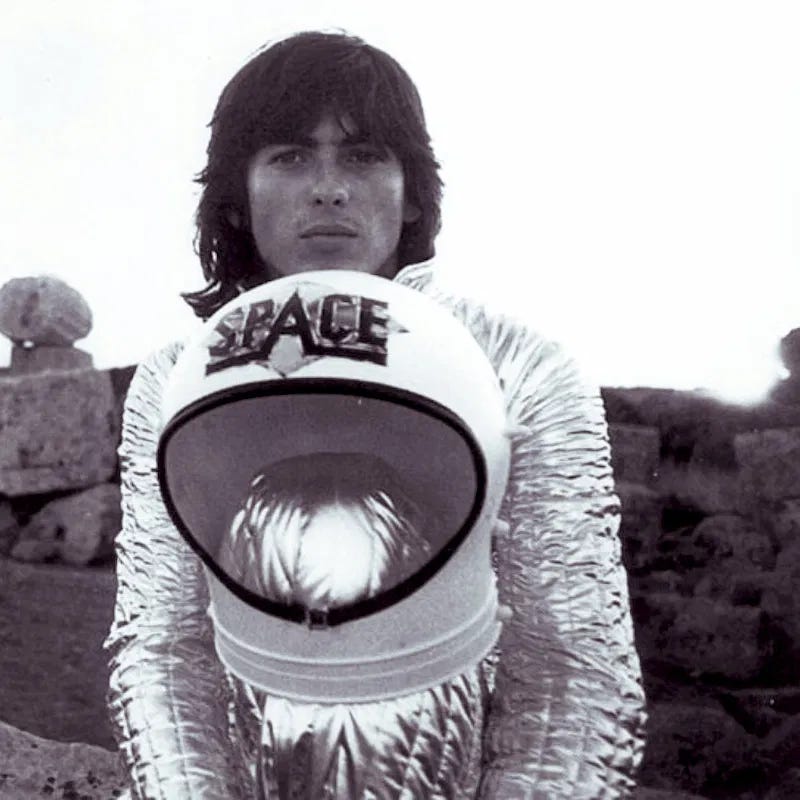Space’s "Carry On, Turn Me On" - Space Disco & Analog Synth Perfection
Didier Marouani's 1977 Track and Defined Future Sounds of Disco
The late 1970s was a golden age for disco and the genre was evolving in Europe. Space, founded in 1977 by Didier Marouani, combined analog synthesizers, sci-fi themes, and hypnotic rhythms to pioneer the sounds of space disco. "Carry On, Turn Me On," featuring Madeline Bell’s powerful voice, didn’t just ride the disco wave, it helped shape electronic music for decades to come.
"Carry On, Turn Me On" by Space, 1977
The “Official video” for this feels distractingly odd to me, with eight minutes focusing on a woman’s body in a way that seemed just awkward. For the entire video, it just seems like they’re trying to get the camera into this woman’s parts.
You’re welcome to watch the official video here, but know what you’re in for.
Carry On, Turn Me On
"Carry On, Turn Me On," from Space’s 1977 debut album, Magic Fly, is a deeply electronic, analog synth-driven track, opening with a slow, atmospheric build before transforming into a hypnotic, driving groove, with Bell’s dynamic vocals bringing warmth to cold, electronic futurism.
Bell is mostly for her work in the UK (with Blue Mink) and her career in France; her 1967 version of “I’m Gonna Make You Love Me” had charted higher in the US than the original when it came out, although Diana Ross’s rendition is most remembered.
synths shape new sounds
Invented in 1972, the ARP Odyssey analog synthesizer became a staple by the mid-70s as artists mastered new electronic instruments, including drum machines and sequenced baselines, they became essential sounds of French acts like Cerrone and Voyage in the same era. European artists were gravitating to electronic sounds much more than their American counterparts.
The simultaneous release of Space's "Carry On, Turn Me On" and Donna Summer's "I Feel Love" in 1977 was a part of a cultural and technological shift as artists embraced synthesizers and electronic disco to explore futuristic sounds.
Marouani produced the album, released earlier the same year as Donna Summer and Giorgio Moroder’s “I Feel Love,” always worth yet another listen. (It’s fascinating to see how even the singers’ movements are graceful compared to the musicians’ more mechanical movements in this video.)
Summer’s airy vocals contrast with a driving, mechanical beat. Bell’s vocal performance in “Carry On, Turn Me On” is built similarly, but over a more sci fi feeling track. Both songs created a template for electronic music moving forward, from new wave to techno, electro and even hinting at the foundations of early house music.
Space was known for their theatrical live performances, often wearing spacesuits in concert, also likely playing blind, as several helmet-wearing performers have described before. Helmets don’t vent well and tend to fog up.
Both songs emerged independently, shaped by global fascination with sci-fi, advancements in electronic instruments, and efforts by European artist to push the boundaries of disco.
1977 is also the year that Star Wars first came out. Space was all over the place.
“Carry On, Turn Me On” sold 10 million copies and charted in 15 countries. Their influence on later bands like Air and Daft Punk are clear, in terms of atmospheric sounds (Air) and performance aesthetics (Daft Punk).
The title track "Magic Fly" remained their biggest hit and is a weird and fun video for the era.


